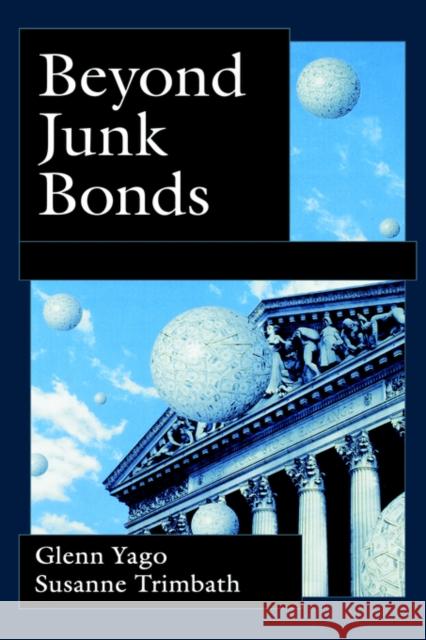Beyond Junk Bonds: Expanding High Yield Markets » książka
Beyond Junk Bonds: Expanding High Yield Markets
ISBN-13: 9780195149234 / Angielski / Twarda / 2003 / 320 str.
Since financial myths exploded in the 1980s, the perspective of time creates a unique opportunity to update and expand the analysis begun in Glenn Yago's 1991 book, Junk Bonds: How High Yield Securities Restructured Corporate America (Oxford University Press). At the time of its publication, Junk Bonds drew controversial responses from the Federal Reserve and government agencies. In retrospect, the evidence clearly casts favorable light on the role of high yield securities. The research presented here demonstrates how financial innovations enabled capital access for industrial restructuring, capital and labor productivity gains, and improved global competitiveness. Enough time has now passed to allow this dispassionate empirical analysis to shear away the hype and hysteria that surrounded the Wall Street scandals, Washington controversies, and media frenzy of the time. Beyond Junk Bonds provides a one-stop data, reference and case study presentation of the firms and securities in the contemporary high yield market and the financial innovations that spurred growth in the nineties and will continue to finance the future. The high yield market incubated successive waves of financial technologies that now proliferate beyond junk bonds to all the dimensions and dynamics of global debt and equity capital markets. It charts the recovery of the market in the 1990s, the recent wave of fallen angels, distressed credits and defaults, and suggests how the high yield market will be recreated in the global market of the 21st century. It explicates the linkages between the high yield market, and other credit and equity markets in managing a firm's capital structure to execute its business strategy. The weakening of the U. S. economy in 2001 and the huge shock to Wall Street from the terrorist attacks of September 11 witnessed a historic increase in the yield to maturity of high yield bonds. Despite the volatility in the flow of funds to high yield mutual funds and occasionally sharp increases in non-investment grade debt yields, the asset class has been one of the best performing fixed income investments of the past decades. In fact, high yield bonds offer an attractive risk-reward ratio competitive with more traditional asset classes. Anyone active in corporate finance, financial institutions and capital markets will find this book a must read for interpreting and understanding the recent history both of the high yield marketplace and its interaction with private equity, public equity, and fixed income markets.











